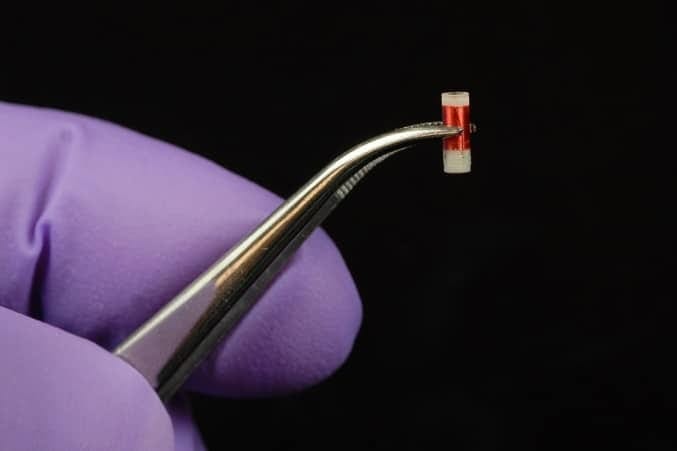- Health Is Wealth
- Posts
- follow the evolution of cancer thanks to a sensor
follow the evolution of cancer thanks to a sensor
[ad_1]
A sensor capable of tracking the progress of cancer has been developed by researchers at the Massachusetts Institute of Technology (MIT). Placed at the heart of the tumor, this small cylinder will send a lot of information to doctors and be able to detect whether the treatment administered to the patient is working.
According to Unicancer, 355,000 new cases of cancer were estimated in France in 2012, 200,000 men, and 155,000 women. If cancer mortality has dropped in the past 20 years, this disease remains the leading cause of death in men and the second in women. The treatments administered to patients are often heavy and painful to bear, and if today there is unfortunately no quick fix, researchers from the Massachusetts Institute of Technology (MIT) have succeeded in taking another step in the fight against cancer. They were indeed able design a sensor capable of monitoring the progress of cancer.
Placed directly in the heart of the tumor

However, the numerous biopsies and MRI scans carried out to determine the progress of the disease do not allow constant monitoring. This is where the sensor comes in, a small two millimeter cylinder. Wrapped in special plastic to prevent infection or rejection, this is placed directly in the heart of the tumor. Thanks to a wireless communication system, the sensor collects information on it, like its oxygen concentration and its acidity, and sends them in real time to a receiver.
These two key pieces of information will allow doctors to know if the treatment administered to the patient works or not. Indeed, if it is effective, the tumor will then become more and more acidic. Cancer cells grow more easily in hypoxia when the amount of oxygen is low, an increase in oxygen levels will then be a good indicator for doctors. At the moment, the sensor has not yet been tested on humans, however, tests on mice have shown more than promise.
[ad_2]
AB SMART HEALTH health home & BUILDING REVIEW